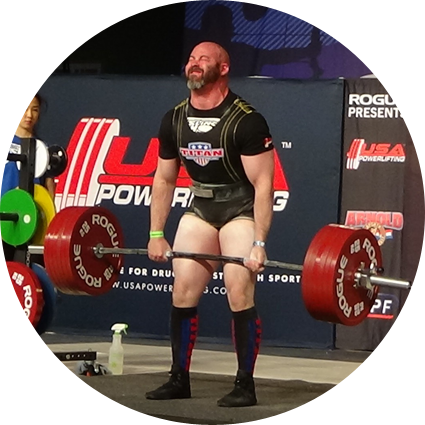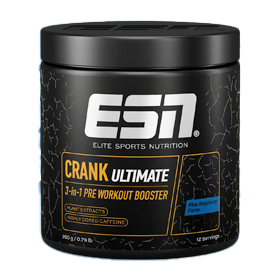
Looking to up your training game? Former strength & conditioning coach Bryan Dermody shares how to apply wisdom to your training plan.
Proverbs have long been considered one of the best sources of wisdom. They are typically clever, pithy sayings that pack a punch by combining an observation about life with advice on how to live life. They usually pit wisdom against foolishness.
You might think of the saying “haste makes waste.” This is an observation that those who are in a hurry often make a mess, but advice is also implied: don’t be in a hurry. “A stitch in time saves nine” is an observation about how life works: those who mend a tear early have a smaller tear to repair. But once again, advice is implied: mend the tear before it gets too large.
You can see that wisdom requires not just knowledge, but also life experience. Below are six proverbs that include wisdom I’ve gained through my 25+ years in the Iron Game.
Proverb: A body that knows all the answers needs to be asked different questions.
Stimulus vs. Adaptation
The training process can essentially be boiled down to the interaction between stimulus (the actual training) and adaptation.
Athletes become stale or plateau in training because the stimulus does not change over time, and as a result, becomes too predictable to the body. The body does not need to adapt (i.e. get bigger, stronger, more powerful, etc.) any longer. It has, in essence, already figured out the “question” it is being asked.
The body, then, needs to be asked different “questions” – it needs to be exposed to a different stimulus that it is not yet used to. It will then be forced to adapt in order to be able to handle that stimulus better the next time it is exposed to it.
How to Fix It
It is very easy to fall in love with one training program, but just because a specific program worked for a time, does not mean it will be effective indefinitely. It is often the case that the best program is the one you’re not on.
Instead think about changing the following in your training:
- main movements
- accessory movement
- barbell to dumbbell
- high volume to low volume
- high intensity to low intensity
- order of exercises in a given session
- order of movements in a given week
- even training time in a given day
Proverb: The fool sees only with his own eyes and walks blind, the wise gets insight through many eyes.
Blinders Stuck On
This proverb is connected to the previous one. All of us have blind spots when it comes to our training. We get attached to certain ways of programming or training and get stuck in our ways. Therefore, we not only need fresh eyes on our training, we need many eyes.
How to Fix It
One application of this proverb is to get a coach. I have a master’s degree in kinesiology and spent 12 years as a professional strength and conditioning coach, yet even with all that knowledge and experience, I have hired coaches in the past to program my powerlifting training.
Those coaches have seen things that I never would have and provided a fresh perspective to my training. They programmed things that I probably never would have.
The result? Better results in my training. If you can’t afford a coach, it would still be hugely beneficial to ask 2-3 people for input on your training. You too will see your training in a brand-new light that will likely produce more effective results.

Proverb: The comfort zone is where the fool dwells, the wise nowhere near it.
Get Out of the Comfort Zone
Once again, we are building off the previous proverbs. Often the reason why an athlete keeps training variables the same over the long haul is not only because of familiarity, but also because of comfort.
How to Fix It
Applying this proverb does not necessarily mean only making small changes to your training but making radical ones.
Often the best way to determine what change in training will yield the best results is to answer the question, “What change, if made in my training, will make me the most uncomfortable?”
Personally, I hate high repetitions (anything above 6 reps per set on squats – yes, that is high for powerlifters). I force myself to do high repetitions for a relatively high number of sets. Again, I hate it, but it produces some of the best strength gains for me.
Proverb: If every rep looks the same, longer you’ll be in the game.
Technique, Technique, Technique
Yes, proverbs often include poetry, so here it is! It’s not just that every rep must look the same. Every rep also must be technically perfect…
This includes your reps on warm-ups sets. This means that you do warm-up sets and don’t skip them! This proverb will keep you healthier and performing better, longer.
How to Fix It
Know what technical proficiency entails for each lift. Also know exactly what your technical flaws tend to be on the major lifts. Focus on those and overall technical proficiency from the moment you unrack an empty barbell. It’s even a good idea to get another set of eyes on yourself or film yourself to apply this proverb consistently.
Proverb: Two things the wise never judge by their cover: a book and a workout.
Finish the Work
Just as a wise person reads a significant portion of a book before they judge how good it is, so a wise person also waits until they complete more than a couple of warm-up sets before they judge how successful a training session will be.
Having the Right Mindset
Many times I have started a training session and my warm-up sets felt heavy or even my first couple of working sets seem to be moving slow. Many would be tempted to trash the training session at this point or at least to alter it significantly.
It is wisest, however, to be patient and realize that it may take the nervous system some time to fully “wake up.” Don’t judge the trajectory of your workout until you complete at least a couple of working sets.
In addition, if you have access to it, use some kind of velocity measuring device. The weight may feel heavy, yet move at a decent speed. In this case, you know for sure that you are on the right track.

Proverb: Many paths, the same destination; one path, a dead end.
Listening to Your Body
This proverb builds off of the previous one. While often it is best to stick to the plan, there are times when the training plan will actually have to be altered. The wise person is willing to call an audible. The fool remains stubborn and refuses to do so.
Knowing When to Change the Plan
So you have a mild nagging injury or you didn’t get great sleep last night or this is just a high stress time of your life… what should you do?
Should you just put your head down and try to plow through your training session no matter what? Sometimes the answer is: no.
But these cases also are usually not the time to abandon your workout altogether. Alter the plan and live to fight another day. This may mean doing belt squat instead of back squat in order to unload the spine. It may mean taking out some volume. Or it may mean using RPE rather than percentage-based intensity in order to relativize your intensity to adapt to your higher stress levels.
Give these proverbs a try in your training. Who knows…maybe after 10 more years of training experience I will have some new ones for you. In the meantime, happy training!

Bryan Dermody, TEAM PEAK Athlete / Powerlifter / Former Strength & Conditioning Coach
Looking for more energy throughout your workouts?
PEAK ATP® provides real energy, identical to the form our bodies actually use to power movement.
While other ingredients are precursors to the body’s production of ATP, PEAK ATP® delivers ATP directly to working muscles when the body needs it most.









